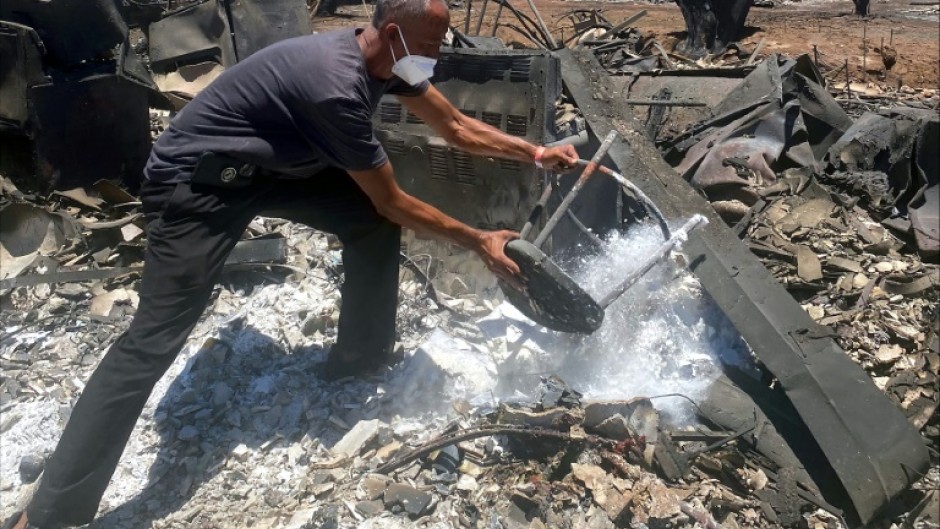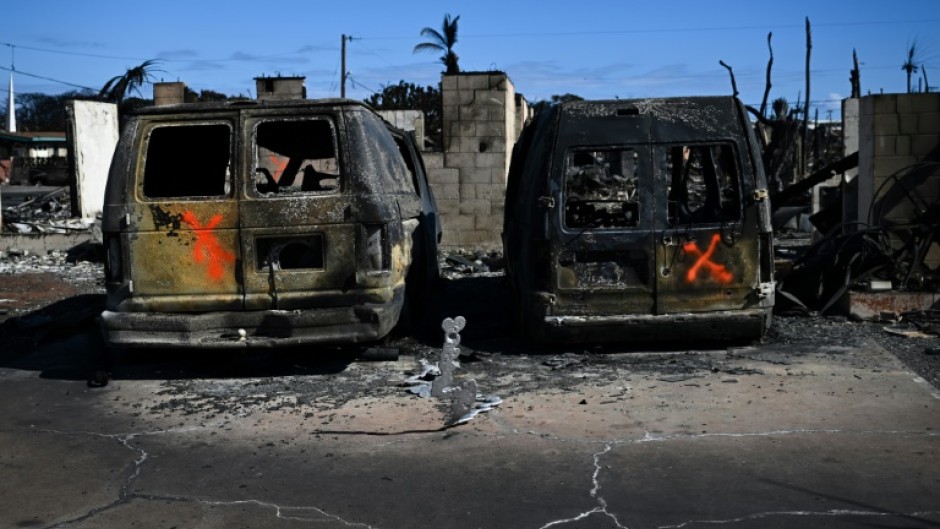LAHAINA - When Anthony La Puente made it back to the place he had called home for the last 16 years, there was almost nothing left.
His house, like most in Lahaina, had been razed by the wildfire that swept through this slice of Hawaiian paradise.
"The only thing I can say is that it hurts. It takes a toll on you emotionally," the 44-year old said.
"It sucks not being able to find the things you grew up with, or the things you remember."
La Puente was one of dozens of people who were allowed back into what used to be Lahaina on Friday.
The 12,000-strong town, which has stood on the island of Maui for hundreds of years, was once the proud home of the Hawaiian royal family.
Thousands of tourists visit every year to soak up the atmosphere, to wander along the scenic harbor front, and to idle under a majestic banyan tree reputed to be the oldest in the United States.
- 'You made it!' -
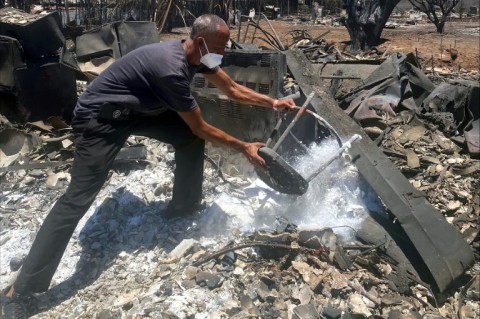
An AFP team that walked through the town on Friday found the blackened corpses of cats, birds and other animals caught in flames that also killed at least 67 people.
Electricity cables dangled uselessly from stricken poles, and small pockets of fire continued to burn.
Spray-painted Xs marked the skeletal vehicles that lay in the street -- a sign to firefighters they have been checked for victims.
All through the town, there were piles of still-warm ashes where family homes once stood.
Using the metal frame of a chair as a makeshift shovel, La Puente sifted through what was once his kitchen, uncovering a Starbucks tumbler.
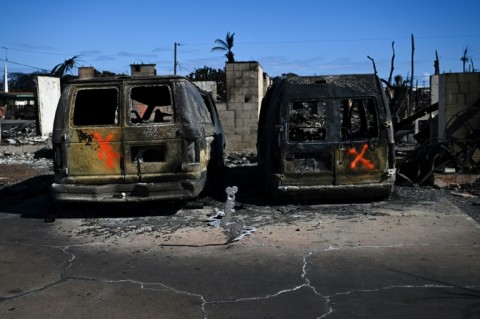
But the boxes of photographs and the mementoes from his 16 years in the house were gone -- including the treasured items of his late father.
"I had packed up my dad's belongings" hoping to sort through them at some point, he said.
But that will never happen.
"Now it's gone."
Elsewhere there was shocked elation as neighbors hugged.
"You made it!" cried Chyna Cho, as she embraced Amber Langdon amid the ruins. "I was trying to find you."
For Keith Todd there was the unspeakable relief of finding his home still standing, his solar panels still pumping electricity to his kitchen.
"I just couldn't believe it," Todd told AFP.
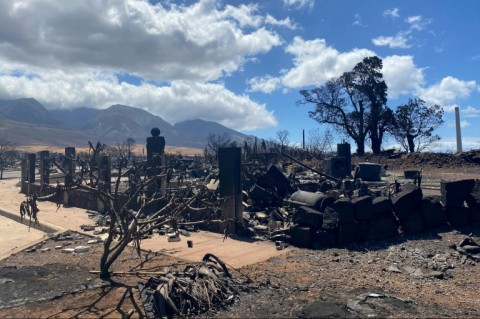
"I'm so grateful, but at the same time it's so devastating," he said, looking around at the unrecognizable piles that were once his neighbors' homes.
Todd was resolved to stay at his house, fearful of the looters that people say have been targeting empty properties.
"I will stay here, now that I know my house and my things are here. I will sleep here just in case someone tries to come in," he said.
- Banyan tree -
Here and there in the warscape were pockets of improbable hope.
The Maria Lanakila Catholic Church was seemingly unscathed, looming over the ashes of Waine'e Street, a small fire burning in front of it like some kind of perverse Eternal Flame.
The stone walls of the historic Hale Pa'ahao prison still stood, but the wooden building that was used to punish unruly sailors was no more -- 170 years of history wiped out.
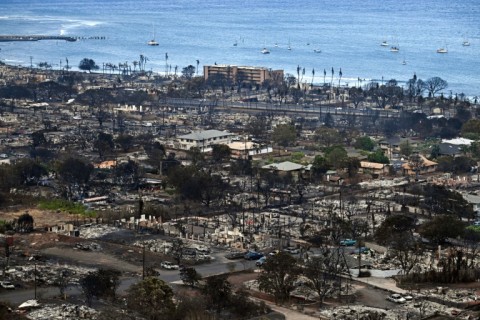
Blocks away, Front Street, where restaurants had jostled with clothing stores for a view of the ocean, was all but gone.
Boats that had been moored in the harbor days earlier were blackened, melted or sunk.
Among the ruins, the huge banyan tree still stood upright, its branches denuded of green and its sooty trunk transformed into an awkward skeleton.
The tree has dominated Lahaina for 150 years, watching over an island that was an independent monarchy, then a US territory, and finally a full US state.
But the city it once guarded is now gone.
pr-hg/leg
By Paula Ramon

